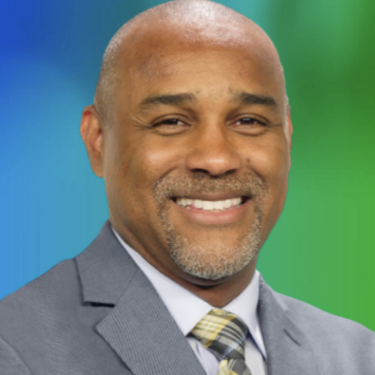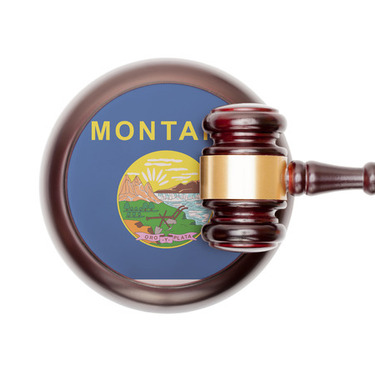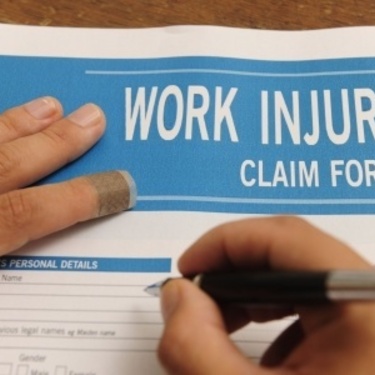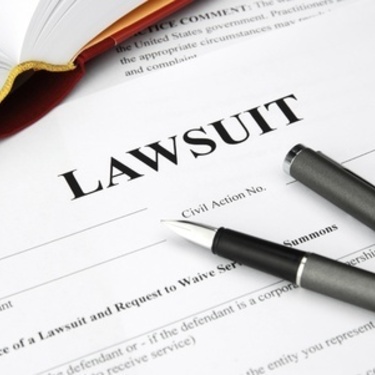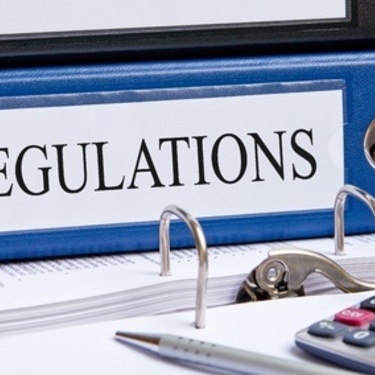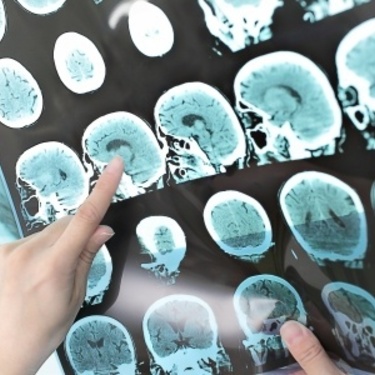CA - WCIRB Approves Recommendation for 0.9% Rate Increase
04/18/2024 |
0
![]() The Workers’ Compensation Insurance Rating Bureau Governing Committee on Wednesday voted for a fifth consecutive time to recommend that the California insurance commissioner increase the advisory pure premium rate.
The Governing Committee voted 8-3, with all members representing insurance companies voting “yes,” to recommend a 0.9% increase in the advisory rate.
In what’s become something of a trend in recent years, the successful vote came after the failure of a motion by public members to use their actuary’s calculations that indicated a 3.3% rate red...
Read More
The Workers’ Compensation Insurance Rating Bureau Governing Committee on Wednesday voted for a fifth consecutive time to recommend that the California insurance commissioner increase the advisory pure premium rate.
The Governing Committee voted 8-3, with all members representing insurance companies voting “yes,” to recommend a 0.9% increase in the advisory rate.
In what’s become something of a trend in recent years, the successful vote came after the failure of a motion by public members to use their actuary’s calculations that indicated a 3.3% rate red...
Read More
MT - Injured Worker Must Attend IME, Sign Informed Consent Document
04/18/2024 |
0
![]() The Montana Workers’ Compensation Court ruled that an employer could compel an injured worker to attend an independent medical evaluation and to sign the provider’s “informed consent” document, but the claimant did not need to complete any other paperwork.
Case: Roberts v. Arch Insurance Co., No. 2023-00278, 04/16/2024, published.
Facts: Sonja Roberts slipped and fell in the parking lot at her workplace in February 2023. She allegedly sustained injuries, which she aggravated while lifting at work in March 2023.
Arch Insurance Co. provided workers’ compensation ...
Read More
The Montana Workers’ Compensation Court ruled that an employer could compel an injured worker to attend an independent medical evaluation and to sign the provider’s “informed consent” document, but the claimant did not need to complete any other paperwork.
Case: Roberts v. Arch Insurance Co., No. 2023-00278, 04/16/2024, published.
Facts: Sonja Roberts slipped and fell in the parking lot at her workplace in February 2023. She allegedly sustained injuries, which she aggravated while lifting at work in March 2023.
Arch Insurance Co. provided workers’ compensation ...
Read More
OH - Employer Must Pay Enhanced Award for Violation of Specific Safety Requirement
04/18/2024 |
0
![]() An Ohio appellate court upheld an enhanced award of benefits to an injured worker, finding his employer’s violation of a specific safety requirement for hydraulic presses was the proximate cause of the accident.
Case: State ex rel. Universal Metal Products Inc. v. Industrial Commission, No. 22AP-608, 04/16/2024, published.
Facts: Christopher Ladson worked for Universal Metal Products Inc. He suffered crush injuries in April 2019 when his right hand got caught inside a hydraulic press.
Ladson had worked on the press several times before his injury. The press had two levers, one on the ...
Read More
An Ohio appellate court upheld an enhanced award of benefits to an injured worker, finding his employer’s violation of a specific safety requirement for hydraulic presses was the proximate cause of the accident.
Case: State ex rel. Universal Metal Products Inc. v. Industrial Commission, No. 22AP-608, 04/16/2024, published.
Facts: Christopher Ladson worked for Universal Metal Products Inc. He suffered crush injuries in April 2019 when his right hand got caught inside a hydraulic press.
Ladson had worked on the press several times before his injury. The press had two levers, one on the ...
Read More
MO - Court Upholds $15 Million Damage Verdict for Seaman's Death
04/18/2024 |
0
![]() The Missouri Court of Appeals upheld a $15 million award of damages on a Jones Act claim for a 22-year-old seaman’s death.
Case: Love v. Osage Marine Services Inc., No. ED111905, 04/16/2024, published.
Facts: Casey Redmond worked for Osage Marine Services Inc. On Dec. 15, 2019, Redmond and his supervisor were working as deck crew on a tugboat.
When the tugboat got an assignment to help put a barge into a fleet, Redmond and his supervisor prepared to board the barge. Both had life vests on.
The supervisor stepped onto the barge and noticed cornmeal on the deck. He then heard the...
Read More
The Missouri Court of Appeals upheld a $15 million award of damages on a Jones Act claim for a 22-year-old seaman’s death.
Case: Love v. Osage Marine Services Inc., No. ED111905, 04/16/2024, published.
Facts: Casey Redmond worked for Osage Marine Services Inc. On Dec. 15, 2019, Redmond and his supervisor were working as deck crew on a tugboat.
When the tugboat got an assignment to help put a barge into a fleet, Redmond and his supervisor prepared to board the barge. Both had life vests on.
The supervisor stepped onto the barge and noticed cornmeal on the deck. He then heard the...
Read More
Sponsored Content
Press - Centre for Neuro Skills Study Finds Differences in Sleep Patterns Between Men and Women with Post-Traumatic Brain Injury
03/05/2024 |
0
Centre for Neuro Skills Study Finds Differences in Sleep Patterns
Between Men and Women with Post-Traumatic Brain Injury
Incidental finding indicates Melatonin helps post-acute TBI patients achieve longer REM sleep
Bakersfield, Calif. (Mar. 5) � Centre for Neuro Skills?(CNS), a premier provider of traumatic and acquired brain injury rehabilitation services, has shared findings from a study researching sleep-wake disturbances, published in Neurotrauma Reports on January 3, 2024. They found that sleep deficits are correlated with poorer brain injury patient outcomes (verbal ...
Read More
Post Your Press Release Here!
Industry Insights
CA - Kamin: More Policy Exclusions Would Reduce Losses
By John P. Kamin
04/18/2024 |
0
![]() Insurance carriers could be saving millions of dollars by properly using exclusions to bar coverage for staffing agencies, thanks to a published decision from 2019.
The 2nd District Court of Appeal’s decision in Travelers Property Casualty Co. of America v. WCAB (Mastache) provides a way for insurance companies to avoid liability for staffing agency employees. In the case, the appellate court ruled that an endorsement, aka exclusions of staffing agency employees, can withstand judicial scrutiny and bar coverage for staffing agency employees. The ruling was premised upon th...
Read More
Insurance carriers could be saving millions of dollars by properly using exclusions to bar coverage for staffing agencies, thanks to a published decision from 2019.
The 2nd District Court of Appeal’s decision in Travelers Property Casualty Co. of America v. WCAB (Mastache) provides a way for insurance companies to avoid liability for staffing agency employees. In the case, the appellate court ruled that an endorsement, aka exclusions of staffing agency employees, can withstand judicial scrutiny and bar coverage for staffing agency employees. The ruling was premised upon th...
Read More
NY - Worker Fails to Establish Total Disability From Combined Mental, Physical Injuries
04/18/2024 |
0
![]() A New York appellate court ruled that an injured worker was not entitled to a finding of total disability for her mental and physical injuries.
Case: Matter of Seide v. Brooklyn Hospital Center, No. CV-22-2147, 04/11/2024, published.
Facts: Marie Seide worked for the Brooklyn Hospital Center. After a workplace accident in 2016, Seide established her entitlement to benefits for physical injuries to her back, left knee and right shoulder, as well as psychological injuries consisting of depressive disorder and post-concussion syndrome.
Procedural history: A workers’ compensation law judg...
Read More
A New York appellate court ruled that an injured worker was not entitled to a finding of total disability for her mental and physical injuries.
Case: Matter of Seide v. Brooklyn Hospital Center, No. CV-22-2147, 04/11/2024, published.
Facts: Marie Seide worked for the Brooklyn Hospital Center. After a workplace accident in 2016, Seide established her entitlement to benefits for physical injuries to her back, left knee and right shoulder, as well as psychological injuries consisting of depressive disorder and post-concussion syndrome.
Procedural history: A workers’ compensation law judg...
Read More
NY - Pair Accused of Cashing Dead Woman's Comp Checks
04/18/2024 |
0
![]() Prosecutors in southeastern New York announced that two people were arrested and charged with grand larceny and insurance fraud for allegedly cashing workers’ compensation checks sent to one of the suspect’s dead mother.
Bryan Dunn, 51, and Hunter Diaz, 26, are accused of working together to steal more than $30,000 in workers’ compensation benefits sent to Dunn’s mother after she died.
"The innocent victims of crimes like these are hard-working members of our community who ultimately foot the bill for rising insurance premiums,” Orange County District Attor...
Read More
Prosecutors in southeastern New York announced that two people were arrested and charged with grand larceny and insurance fraud for allegedly cashing workers’ compensation checks sent to one of the suspect’s dead mother.
Bryan Dunn, 51, and Hunter Diaz, 26, are accused of working together to steal more than $30,000 in workers’ compensation benefits sent to Dunn’s mother after she died.
"The innocent victims of crimes like these are hard-working members of our community who ultimately foot the bill for rising insurance premiums,” Orange County District Attor...
Read More
TN - Governor Signs Bill Creating Self-Insurers' Guaranty Association
04/18/2024 |
0
![]() Tennessee Gov. Bill Lee signed a bill creating a guaranty association to step in and pay workers’ compensation benefits because of the insolvency of a self-insured employer.
The governor signed the Tennessee Self-Insurers’ Guaranty Association Act in HB 2306/SB 2909 on April 9.
The measure creates the nonprofit guaranty fund and requires that all individually self-insured employers remain members as a condition of their authority to self-insure.
The guaranty fund will be managed by a five-person board of directors and will be authorized to establish minimum security deposits and...
Read More
Tennessee Gov. Bill Lee signed a bill creating a guaranty association to step in and pay workers’ compensation benefits because of the insolvency of a self-insured employer.
The governor signed the Tennessee Self-Insurers’ Guaranty Association Act in HB 2306/SB 2909 on April 9.
The measure creates the nonprofit guaranty fund and requires that all individually self-insured employers remain members as a condition of their authority to self-insure.
The guaranty fund will be managed by a five-person board of directors and will be authorized to establish minimum security deposits and...
Read More
CA - Court Upholds Summary Dismissal of Worker's Claims for Retaliation, Emotional Distress
04/17/2024 |
0
![]() A California appellate court upheld the dismissal of a worker’s civil case against his former employer, finding his claims for retaliation and the negligent and intentional infliction of emotional distress all failed as a matter of law.
Tom Faley worked as a district manager for Ferrellgas Inc. He was supervised by Denise Whisman. Jesse Lamkin was one of two Ferrellgas employees whom Faley supervised.
In August 2018, Faley underwent his first performance review in his position as a manager, and he was informed that he needed to improve. In the months that followed, Whisman communi...
Read More
A California appellate court upheld the dismissal of a worker’s civil case against his former employer, finding his claims for retaliation and the negligent and intentional infliction of emotional distress all failed as a matter of law.
Tom Faley worked as a district manager for Ferrellgas Inc. He was supervised by Denise Whisman. Jesse Lamkin was one of two Ferrellgas employees whom Faley supervised.
In August 2018, Faley underwent his first performance review in his position as a manager, and he was informed that he needed to improve. In the months that followed, Whisman communi...
Read More
Sponsored Content
Press - Centre for Neuro Skills Promotes Nicholas Ashley to Chief Governance Officer
03/13/2024 |
0
Centre for Neuro Skills Promotes Nicholas Ashley to Chief Governance Officer
Bakersfield, Calif. (March 13, 2024) - Centre for Neuro Skills (CNS), a leader in traumatic brain injury and stroke rehabilitation services, today announced the promotion of Nicholas Ashley, J.D., M.D.R., to chief governance officer.
�Nick has been instrumental to the growth and expansion of CNS,� says David Harrington, president and chief executive officer of Centre for Neuro Skills. �I�m excited to continue working closely with him to advance patient care.�
During his 11-year tenure at CNS, Ashley serve...
Read More
Post Your Press Release Here!
LA - Court Overturns PTD Award for Worker With PTSD
04/17/2024 |
0
![]() A Louisiana appellate court overturned an award of permanent total disability benefits for a worker claiming post-traumatic stress disorder from a fight with a combative hospital patient.
Case: Tombrello v. Louisiana, No. 55,490-WCA, 04/10/2024, published.
Facts: John Tombrello worked for the Louisiana State University Health Science Center. He allegedly suffered psychological injuries because of a physical altercation with a patient in June 2011. The patient urinated, defecated and repeatedly spat on him. The patient then told Tombrello that he had “AIDS and syphilis and everythi...
Read More
A Louisiana appellate court overturned an award of permanent total disability benefits for a worker claiming post-traumatic stress disorder from a fight with a combative hospital patient.
Case: Tombrello v. Louisiana, No. 55,490-WCA, 04/10/2024, published.
Facts: John Tombrello worked for the Louisiana State University Health Science Center. He allegedly suffered psychological injuries because of a physical altercation with a patient in June 2011. The patient urinated, defecated and repeatedly spat on him. The patient then told Tombrello that he had “AIDS and syphilis and everythi...
Read More
OH - Judge Did Not Err in Declining to Issue Jury Interrogatories Proposed by Employer
04/17/2024 |
0
![]() An Ohio appellate court upheld a jury’s determination that a worker was entitled to expand the scope of his workers’ compensation claim, finding no error in the trial judge’s decision not to issue the interrogatories proposed by the employer.
Case: Smith v. Honda of America Mfg. Inc., No. 8-23-17, 04/15/2024, published.
Facts and procedural history: Brian Smith worked for Honda of America Mfg. Inc. He filed a workers’ compensation claim in 2017 and received an award of benefits for synovitis/tenosynovitis in his left hand and index finger in both hands.
In ...
Read More
An Ohio appellate court upheld a jury’s determination that a worker was entitled to expand the scope of his workers’ compensation claim, finding no error in the trial judge’s decision not to issue the interrogatories proposed by the employer.
Case: Smith v. Honda of America Mfg. Inc., No. 8-23-17, 04/15/2024, published.
Facts and procedural history: Brian Smith worked for Honda of America Mfg. Inc. He filed a workers’ compensation claim in 2017 and received an award of benefits for synovitis/tenosynovitis in his left hand and index finger in both hands.
In ...
Read More
NY - Court: Worker Should Have Been Denied Leave to File Late Claim
04/17/2024 |
0
![]() A New York appellate court ruled that a worker should not have been granted permission to belatedly file civil claims against municipal entities for his alleged injuries from a construction site accident.
Case: Matter of Philbin v. City of New York, No. 151922/22, 04/11/2024, published.
Facts and procedural history: Stephen Philbin allegedly suffered injuries to his shoulder in a scaffold accident while working on property owned by the New York City Housing Authority.
Philbin filed a workers’ compensation claim a few weeks later, but he waited months before attempting to file suit aga...
Read More
A New York appellate court ruled that a worker should not have been granted permission to belatedly file civil claims against municipal entities for his alleged injuries from a construction site accident.
Case: Matter of Philbin v. City of New York, No. 151922/22, 04/11/2024, published.
Facts and procedural history: Stephen Philbin allegedly suffered injuries to his shoulder in a scaffold accident while working on property owned by the New York City Housing Authority.
Philbin filed a workers’ compensation claim a few weeks later, but he waited months before attempting to file suit aga...
Read More
TX - DWC Adopts Accident-Prevention Rules
04/17/2024 |
0
![]() The Texas Division of Workers’ Compensation on Tuesday announced the adoption of rules governing the processes insurance companies use to submit information on their accident-prevention services.
The division said the rules that take effect July 1 eliminate overly burdensome reporting requirements that companies must follow to demonstrate the sufficiency of their accident-prevention services.
The rules eliminate a requirement that carriers maintain written procedures governing the evaluation of policyholders’ needs for accident-prevention services. They also remove the requi...
Read More
The Texas Division of Workers’ Compensation on Tuesday announced the adoption of rules governing the processes insurance companies use to submit information on their accident-prevention services.
The division said the rules that take effect July 1 eliminate overly burdensome reporting requirements that companies must follow to demonstrate the sufficiency of their accident-prevention services.
The rules eliminate a requirement that carriers maintain written procedures governing the evaluation of policyholders’ needs for accident-prevention services. They also remove the requi...
Read More
NATL. - DOL Lowers Permissible Exposure Limit for Silica Dust
04/17/2024 |
0
![]() The U.S. Department of Labor on Tuesday announced that its Mine Safety and Health Administration issued a final rule that lowers the permissible exposure limit for silica dust.
The rule lowers the PEL from 100 to 50 micrograms per cubic meter of air for a full-shift exposure. Mine operators are required to take immediate corrective actions when exposure exceeds the limit.
In addition to reducing exposure limits, the final rule also requires mine operators to use engineering controls to prevent overexposure to respirable crystalline silica and use dust samplings and environmental evaluations ...
Read More
The U.S. Department of Labor on Tuesday announced that its Mine Safety and Health Administration issued a final rule that lowers the permissible exposure limit for silica dust.
The rule lowers the PEL from 100 to 50 micrograms per cubic meter of air for a full-shift exposure. Mine operators are required to take immediate corrective actions when exposure exceeds the limit.
In addition to reducing exposure limits, the final rule also requires mine operators to use engineering controls to prevent overexposure to respirable crystalline silica and use dust samplings and environmental evaluations ...
Read More
CA - Chiropractor Sentenced to More Than 54 Years, Fined $23M
04/16/2024 |
0
![]() A Southern California chiropractor accused of illegally running a law firm to funnel injured workers into his network of medical clinics to churn bills was ordered to serve more than 54 years in state prison and fined $23 million, the Riverside County District Attorney’s Office announced.
Peyman Heidary, 53, was ordered to serve 54 years and eight months in a state prison at a sentencing hearing Friday. He was also ordered to pay more than $23 million in fines for his role in orchestrating what prosecutors said was a $150 million work comp fraud scheme.
A jury in January convicted Peym...
Read More
A Southern California chiropractor accused of illegally running a law firm to funnel injured workers into his network of medical clinics to churn bills was ordered to serve more than 54 years in state prison and fined $23 million, the Riverside County District Attorney’s Office announced.
Peyman Heidary, 53, was ordered to serve 54 years and eight months in a state prison at a sentencing hearing Friday. He was also ordered to pay more than $23 million in fines for his role in orchestrating what prosecutors said was a $150 million work comp fraud scheme.
A jury in January convicted Peym...
Read More
CO - Worker Gets Benefits for Head Injury
04/16/2024 |
0
![]() The Colorado Court of Appeals upheld an award of benefits to a municipal employee for a head injury that necessitated two brain surgeries and left him with cognitive difficulties.
Case: Town of Kiowa v. Industrial Claim Appeals Office, No. 23CA1605, 04/11/2024, published.
Facts: Kent Berends worked for the Town of Kiowa as a public works manager. He struck his head on a metal car lift while at work on April 30, 2020.
Berends did not immediately report the incident to anyone at work, but in the following days, both he and his wife allegedly noticed he had difficulty remembering things, was s...
Read More
The Colorado Court of Appeals upheld an award of benefits to a municipal employee for a head injury that necessitated two brain surgeries and left him with cognitive difficulties.
Case: Town of Kiowa v. Industrial Claim Appeals Office, No. 23CA1605, 04/11/2024, published.
Facts: Kent Berends worked for the Town of Kiowa as a public works manager. He struck his head on a metal car lift while at work on April 30, 2020.
Berends did not immediately report the incident to anyone at work, but in the following days, both he and his wife allegedly noticed he had difficulty remembering things, was s...
Read More
